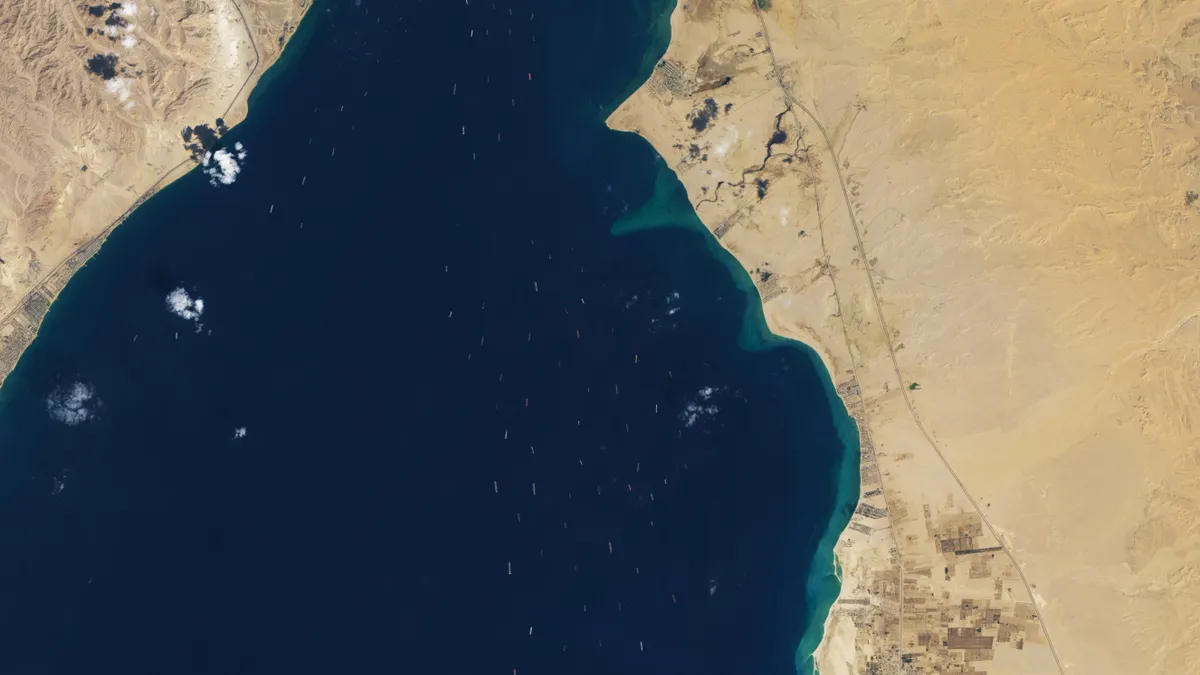Dive Brief:
- Europe is the region expected to experience the largest impact from the days-long blockage of the Suez Canal with the United Kingdom, Germany, Belgium, France, Netherlands, Italy, Switzerland, Spain, Turkey and Austria expected to take on the most repercussions, according to an analysis emailed by Dun & Bradstreet.
- The industries in Europe expected to see the largest impacts include eating and drinking establishments, construction, wholesale trade, chemicals and related products, health services, food retailers, industrial and commercial machinery, metal production, and automotive repair.
- Retailers in the U.S. that are likely to be the most exposed include PVH, H&M and Walmart, according to analysis by S&P Global Panjiva.
Dive Insight:
It will take some time to move through all the vessels that began to stack up as a result of the Suez Canal blockage. As of Wednesday morning, 355 vessels were waiting to pass the canal, according to an update from Hapag-Lloyd.
Companies across industries have had to address their inventory in transit over the last few days to figure out what kind of impact they are facing. Earlier this week, Ikea confirmed it had containers held up as a result of the logjam. And other companies have been addressing their impact with analysts in recent days.
"Is it going to transform everything in a negative way? No," H.B. Fuller CEO James Owens said on the company's earnings call last week. The company manufacturers adhesives and industrial sealants. "But it's an issue that we're watching very carefully. We're tracking exactly what materials that our suppliers have that might be on those ships."
Owens said the company's sourcing team, supply chain team and commercial team already meet daily to talk about sourcing for "thousands of materials" and that strategizing for "a ship stuck in the Suez is exactly what they're set up to do."
Some companies have been able to look into the situation and have determined the impact will be nominal on their operations.
"It's minimal for us in terms of what's caught up in that," Academy Sports and Outdoors Executive Vice President and Chief Merchandising Officer Steve Lawrence said on the company's earnings call. "It's a rounding error. It doesn't impact us."
But the impact analysis for this kind of disruption doesn't stop at a company's own inventory.
"Complete an immediate assessment of your suppliers and suppliers’ suppliers to determine the impact to your own supply chain operation," Dun & Bradstreet suggested in its release. It said looking into effects on tier 1 and 2 suppliers can provide a clearer picture of what kind disruption a company should prepare for and expect.















